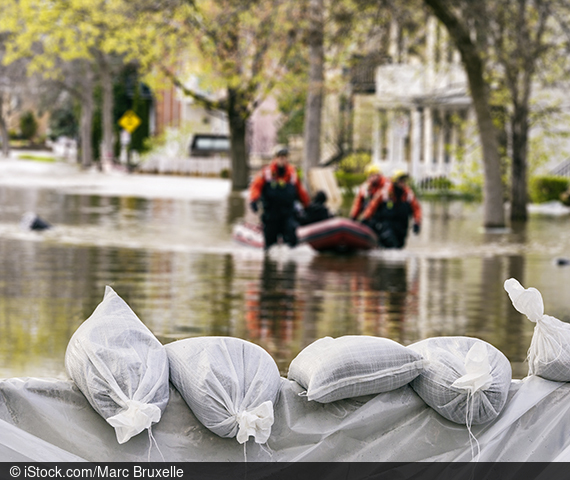Flood Damages Burden Poorer Households More Than Wealthy Ones
ResearchZEW Study Recommends State Subsidies for Flood Protection Measures
For low-income households in Germany, the financial damage caused by floods is lower in absolute terms than for wealthier households. However, the former have to spend a larger amount relative to their income to repair the damage. This is the result of a recent study conducted by Dr. Daniel Osberghaus at ZEW Mannheim.
In absolute terms, the losses in euros are comparatively low for low-income households. This is partly due to the fact that poorer households own or live in smaller flats or houses. At the same time, these households also have hardly any financial means to invest in technical protective measures such as backwater flaps or water barriers on doors and windows or to take out insurance against flood damage. “Low-income households may not have much to lose in absolute terms, but they are also poorly prepared for floods,” Osberghaus summarises his findings.
In relative terms – i.e. in relation to income – the damage is much higher for poorer households than for wealthier ones: In the event of damage, they have to spend a significantly larger share of their income on repairing the damage – despite the lower absolute financial loss. The reason for this is the lack of precautionary measures.
State could subsidise flood protections measures for low-income households
Based on these findings, economist Osberghaus offers some recommendations for policymakers: When providing compensation after a flood, the state should take into account the income and assets of the recipients. “So far, all those affected by floods have received a lump-sum financial aid payment, i.e. the payment was only based on the absolute damage. In this way, richer households benefit more than low-income households,” explains Osberghaus. In addition, low-income households often lack the means to take precautions against floods. “The state should consider granting targeted financial subsidies to low-income households for private flood protection. Otherwise, these people simply cannot afford the technical measures to protect their homes from flooding, let alone take out insurance,” Osberghaus continues.
Climate change increases flood risk
In recent years, flood damage has repeatedly caused considerable losses to households in Germany and Europe. Climate change is expected to exacerbate this situation in the coming decades. For example, in a scenario with strong climate change, scientists expect that annual damages in Europe could increase from currently 5.3 billion euros to 20-40 billion euros in 2050. Against this background, the ZEW study analyses how the estimated flood damages are related to the social status of those affected. “The ZEW study is the first to examine these questions for all of Germany at the household level,” says Osberghaus.
